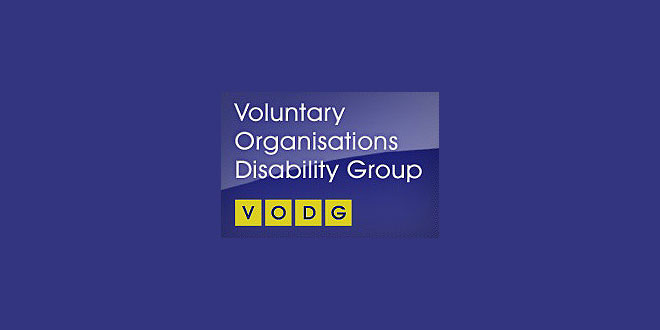Government Must Rethink “Flawed” Mental Capacity Reforms
 The Mental Capacity (Amendment) Bill now reaching a crucial parliamentary stage requires a radical rethink, according to the charity that represents voluntary sector care organisations.
The Mental Capacity (Amendment) Bill now reaching a crucial parliamentary stage requires a radical rethink, according to the charity that represents voluntary sector care organisations.
The Voluntary Organisations Disability Group (VODG) issued the warning as the Bill reaches the committee stage where it will be scrutinised by MPs. The Bill already includes over 90 amendments from peers, reflecting the reservations that have met its passage through parliament.
The Bill aims to provide legal safeguards required under the European Convention on Human Rights. It is designed to reform the process for authorising arrangements enabling people who lack capacity to be deprived of their liberty so they can consent to care or treatment (an example of a deprivation of liberty would be a person being prevent from leaving a care home by their own free will).
VODG believes mental capacity legislation reform is vital to safeguard people who need support; the Bill will affect the human rights of over 300,000 people in England and Wales including those with dementia, learning disabilities and brain injuries. VODG agrees with the recent Joint Committee on Human Rights report stating that the existing system is broken and needs urgent action.
However, VODG is critical of the content, motive and ethos of the Bill and the fact that the Department of Health and Social Care (DHSC) has failed to fully engage and consult with social care providers on the reforms.
The Bill will replace the existing Deprivation of Liberty Safeguards (DoLS) with Liberty Protection Safeguards (LPS) and will give care managers the lead, rather than local authorities, when make LPS decisions.
VODG warns of the potential conflict of interest created by placing LPS assessment responsibilities on care managers because the person responsible for maximising the use of the service will also be responsible for deciding if someone objects to being there. Providers may face allegations they are depriving someone of their liberty to fill a vacancy. VODG also has concerns about the financial and practical impact of fulfilling this new responsibility when care providers are already under enormous strain.
VODG’s additional concerns about key aspects of the bill include:
- the lack of focus on the views of the person being assessed, their family or carers (DoLs apply to the person’s best interests but LPS are based on what is “necessary and proportionate” with no absolute requirement to consider the person’s wishes)
- the lack of clarity on how LPS will be applied in settings beyond care homes and hospitals and the risk of a two tier system developing
- NHS England’s policy Building the Right Support aims to reduce the numbers of people being detained in long-term inpatient hospital units; such hospitals’ efforts to move people out to community services is patchy, so giving these particular hospitals responsible body status for LPS is worrying
- the focus on how reforms will save local authorities an estimated £200m a year calls into question the motives for the changes
- DoLS apply to people with a “mental disorder” but LPS apply to people of “unsound mind”, with no definition of what this stigmatising term means.
Dr Rhidian Hughes, VODG chief executive, said:
“VODG has significant concerns about the integrity of the Mental Capacity (Amendment) Bill which we believe to ill-conceived and flawed. Reform is crucial if the rights of people living in vulnerable circumstances are to be protected, yet the very sector that supports such individuals has not been meaningfully engaged on the changes. The way the Bill has been handled suggests that the goal is saving money, rather than a thoughtful process that prioritises people’s best interests. In its current form, the Bill is not fit for purpose. It requires substantial changes to ensure we have a civilised and effective way of taking life-changing decisions with and for people who need the most support.”






